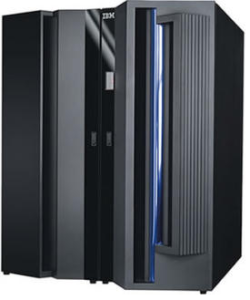
Precisely CEO Discusses the Rebrand from Syncsort

Syncsort last week changed its name to Precisely, a move that CEO Josh Rogers says was all about showcasing how the company has pivoted its strategy to an emerging category of tools centered on data integrity.
“If you think about the types of products we have and what workloads we execute for customers, we’re all about delivering high quality, precise data so systems can run efficiently and analytics can happen,” Rogers told Datanami in a recent interview.
With a 50-year history of delivering data integration solutions for the IBM mainframe, Syncsort certainly conjured a certain picture in the minds of its customers. The company was mindful of that perception as it completed the acquisition of the data and software assets of Pitney Bowes, which has a 100-year history providing solutions for American businesses.
“We certainly thought about that,” Rogers says. “The mainframe solutions are incredibly important to the business. They continue to be a growing product for us, an area of investment for us, and a distinguishing capability that we have.
“At the same time,” he continues, “we were getting feedback from customers, including mainframe customers, saying, look a new brand would actually be helpful for us because people want to invest in modern technology to help them get more value out of data, but they don’t want to invest necessarily in mainframe environment.”
Syncsort was predominantly a mainframe solutions provider when it entered the big data space in 2013 with a version of its data integration software that ran natively on Hadoop, called DMX-h. Mainframe customers could save millions of dollars by offloading large batch jobs from expensive mainframes to Hadoop clusters running on commodity hardware.
Over the years, the company expanded its reach into other elements of the big data ecosystem with integrations to data analytic platforms like Splunk, Spark, Snowflake, and other systems. Then in 2016, it acquired Trillium, and launched several new data quality solutions as a result.
That evolution gave Syncsort a unique vantage point to help companies solve data-related challenges, Rogers says.
“We felt like Syncsort’s heritage was actually quite useful because it gave us credibility inside of systems, but also through a number of steps we took to modernize the Syncsort brand, we were able to extend it to this notion of Big Iron to Big Data,” he says. “As we continued to expand the portfolio….we started to expand pretty deeply into data quality and data enrichment space.”
After the Pitney Bowes acquisition was finalized, Syncsort’s transition from a specialized data integration tool company into a provider of data integration, data quality, data enrichment, and location intelligence offerings was complete, so the company needed a new identity.
After careful thought, the company chose Precisely because it supported the company’s newfound focus on providing tools to help drive precision out of their data. The name works well with each of the four main product categories — Integrate, Verify, Locate, Enrich – that it has today, Rogers says.
“Precise and precision are key distinguishing characteristics of the types of software we’ve been delivering to the market and the systems they’ve been supported over the last couple of decades,” he says. “It’s nice because it fits across the portfolio.”
It even fits with the high availability and security offerings that Syncsort obtained in its 2017 merger with Vision Solutions, which serviced the IBM i segment of the Power Systems market. “You need a high level of precision to support high availability between mission critical transactional applications,” Rogers says. “That system has to be highly precise in the way it does replication, in the way it handles failover, etc.”
A lot of IBM i customers will probably still refer to the Vision name, or even the names of companies that Vision acquired prior to its Syncsort merger. And the IBM mainframe customer will still have Syncsort, which is now the name of Precisely’s data integration products for mainframe.
“We think that’s a perfect way to honor the heritage of that name and put it in a place where it will maximize its impact and relevance,” Rogers says. “Frankly, the feedback I’ve gotten from all of our customers, including specific large mainframe customers — they love the name.”
Going forward, Rogers hopes the new name will help cement the company’s reputation as a provider of data integrity tools. There’s no widespread recognition of data integrity as a data category unto itself, yet, but Rogers says he thinks it is catching on.
“Analysts don’t have a consistent way to talk about all the middleware and tools that sit between source system and analytics systems,” Rogers says. “Some of the analysts in this space parse into very specific domains [things like] integration, real time streaming, CDC, metadata management, master data management, data quality, data profiling, data prep.
“My view is that, in the middle of all of those things is really just customers trying to get the right set of data that I can trust that’s accurately consistent and has maximum context for a decision. And we think the market can use a better classification of what those capabilities are in the segment, and we think data integrity is the right name.”
Later this year, Precisely will roll out a revamped strategy geared around enabling customers to access the breadth of the company’s offerings across the Integrate, Verify, Locate, Enrich product families, whether they’re on prem, in the cloud, or a mix of both. Stay tuned to Datanami to hear about that new approach when the company unveils it.
Related Items:
Syncsort Doubles Down on Data Quality with Pitney Bowes Buy
Data Quality Unites with Integration at Syncsort
Syncsort Bolsters Mainframe-to-Hadoop Play with Circle Buy





























